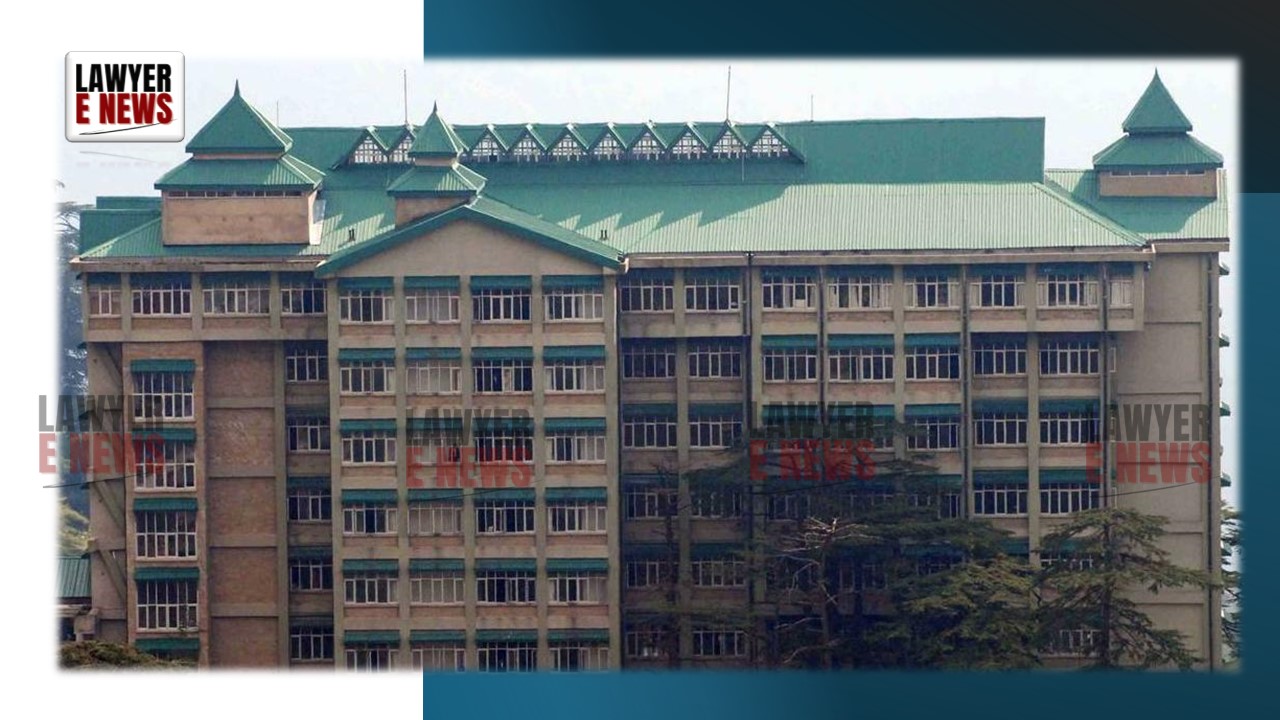-
by sayum
14 February 2026 2:22 PM



In a significant ruling, the Himachal Pradesh High Court has dismissed a petition challenging an order of the Rent Controller, which denied a tenant's application to amend his reply in an eviction proceeding. The bench, led by Justice Jyotsna Rewal Dua, emphasized the principle that amendments under Order 6 Rule 17 of the Civil Procedure Code (CPC) must be sought with due diligence and that the petitioner had failed to demonstrate any new or emergent circumstances justifying the delay of nearly a decade.
The eviction petition was filed by the landlord, Narender Kumar Sood, in April 2014 against the tenant, Surjan Singh Kukreja, seeking to vacate the premises for bona fide use. The tenant filed a reply in February 2015, raising objections about the petition’s credibility, accusing the landlord of inconsistency in his claims. Among other defenses, the tenant argued that the eviction petition had been filed with dishonest intentions and pointed out that a previous eviction petition on similar grounds had been withdrawn by the landlord.
Years later, as the case neared the evidentiary stage, the tenant sought to amend his reply under Order 6 Rule 17 CPC in January 2024, claiming that the earlier petition’s withdrawal rendered the current petition invalid. The Rent Controller, in February 2024, dismissed the amendment application, leading the tenant to approach the High Court through a civil revision petition.
Timeliness and Diligence: Justice Jyotsna Rewal Dua observed that while the law allows for amendments to pleadings, such applications must be made in a timely manner, particularly where the facts were already known to the applicant. In this case, the court pointed out that the tenant had been aware of the facts related to the previous eviction petition when he first filed his reply in 2015. Despite this, the tenant waited nearly 10 years to seek an amendment, demonstrating a lack of due diligence.
"Moving an application seeking amendment of the reply filed 10 years ago on the basis of facts already pleaded in the reply speaks volumes about lack of diligence on part of the tenant/applicant," the court noted.
The court further highlighted that the tenant had already raised issues about the withdrawal of the earlier petition in his initial reply, and issues were framed based on those objections. The Rent Controller had rightly concluded that the tenant’s attempt to introduce amendments related to Order 23 of the CPC was unnecessary and repetitive. The court remarked that the amendment was neither warranted nor essential to resolve the controversy.
Justice Dua referenced various judgments cited by the tenant's counsel, where a liberal approach to amendments was encouraged. However, the court clarified that even in such cases, applicants must demonstrate due diligence and explain any delays. The tenant, in this case, had not met those requirements. The court also differentiated this case from others, noting that the tenant's amendment was sought at a late stage, after evidence had already begun to be recorded.
The court reaffirmed the principle that while amendments should be allowed to resolve real questions in controversy, they cannot be permitted to resurrect issues that have already been addressed. Justice Dua emphasized that the discretionary power to allow amendments must be exercised judiciously, particularly when long delays and lack of due diligence are involved. The court concluded that the Rent Controller had properly applied the law in denying the amendment.
In dismissing the tenant's petition, the Himachal Pradesh High Court underscored the importance of timely and diligent applications for amendment of pleadings. By upholding the Rent Controller's decision, the court affirmed that parties must not seek to delay proceedings by raising long-standing issues at a late stage. The judgment sets a clear precedent that legal provisions related to amendments should not be misused to prolong litigation unnecessarily.
Date of Decision: September 3, 2024
